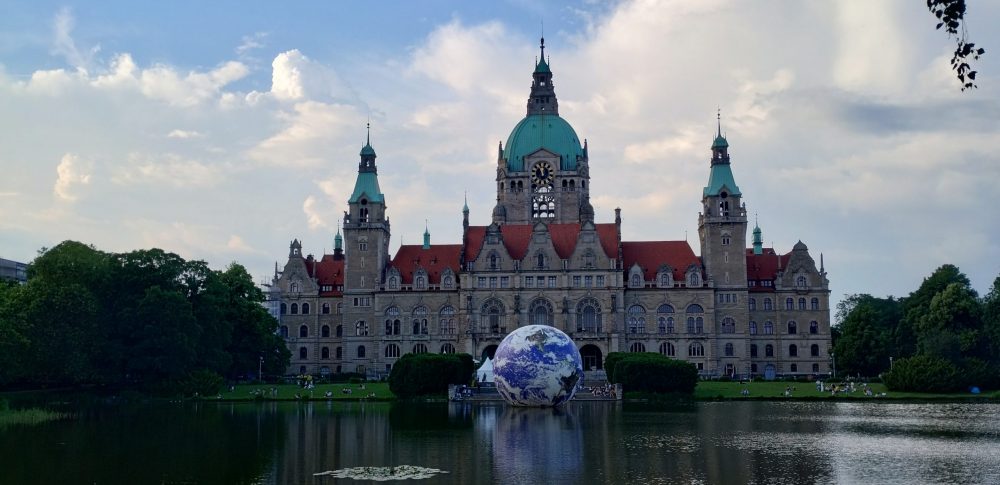I integrate authentic material into my classes as soon as possible. It is essential for developing your language skills as quickly and steadily as possible, especially if you are living in the country of the language you are learning. You do need a high tolerance for the ‘unknown’, but you need that anyhow when you move to a country whose language you do not speak. You have the rare opportunity of being in the country surrounded by the language and culture. Use it. Don’t only keep company with your fellow country people. Or if you do (I definitely understand the need), explore the new language together. And don’t spend too much time with language learning apps. They can be useful in the beginning of your learning journey, but ‘the real thing’ will eventually be more interesting and more useful for your life in the new country.
Teaching online provides the great advantage of having a vast array of authentic material at one’s disposal. Besides the pages specifically for language learners that I recommend below (here especially Easy German and DW), I like to use pages of venues or shops; cinemas, theater, sportsarenas, gyms etc. One I enjoyed and used a lot lately was the web site of the Hannover Zoo. It is very well structured and offers loads of different topics.
Another great page to visit related to the topic: Serengeti-Park – Der Tier und Freizeitpark in Niedersachsen – Serengeti Park
It doesn’t matter where you go, most webpages of these kinds of venues are very well structured and provide great visuals you can use. (After all, they want you to come visit :-))
We started with basics like Öffnungszeiten and Ticketpreise, and practiced numbers and saying the time. We continued with naming the animals and looking at the restaurant menu. Someone had already been there and told us about her experience. You can practice vocabulary by describing things (‘Guess the animal’), and ask questions. Especially with beginners, you can practice questions about times, opening hours, special events etc.
The Zoo is just one example. I will provide activities, questions and dialogues relating to different situations based on these kinds of websites. They will be posted under Situational Language or Talk about...
With more advanced groups, zoos can be discussed controversially. Some people don’t like zoos as institutions because they see them as prisons for animals that should live in the wild (discuss)
Update October 2025:
Sometimes, actually more and more often, topics ‘just happen’ – even in my German beginners class. They sometimes evolve out of questions I asked – what they did on the weekend e.g. (as simple as that), or vocabulary questions from course members.
In one session, a course member told us that she had been to the playground in her neighbourhood with her kids and we spoke about playgrounds and children’s play. I knew the place and the story around its name. So we went to google maps and checked. I must admit, that turned out to become too ‘high level’ and we had to stop (save it for another day).
Someone else had been to the ‘Oktoberfest’ in Hannover.
Das Oktoberfest is a great topic for a whole session. It can be supplemented by videos from ‘Easy German’ (post will follow). There is a lot of information on the internet. Topics connected: folkloristic clothes, different regions of Germany, the original Oktoberfest and the various spin offs, special foods served at the Octoberfest, history of the event etc.
In another session, someone asked about the words ‘öffentlich’ and ‘privat’. The trigger was TV (öffentlich-rechtliches Fernsehen). We tried to figure out what ‘Öffentliche Einrichtungen’ are and came up with a wonderful vocabulary list. In the end, we spoke about libraries and the special one in Hannover: the mobile library ‘Fahrbibliothek’ (see post Öffentliche Einrichtungen | ).
More possible topics:
- In einem Sportsshop (example Decathlon)
- In einem Supermarkt (any example)
- Sportvereine
If you are online and can’t meet in presence, go to any online shop or club page. Collect the words for the things on display (the sports on offer), talk about the activities involved and create flashcard sets for vocabulary practice (picture vocabulary sets).
I also like using google maps. Especially in new groups, we talk about where we live and find out more about the city they moved to. Google maps is also great for talking about course members’ home countries. We’ve been (virtually) to Malaysia, Mumbai (India), Spain, Ireland – wherever someone came from.
*
